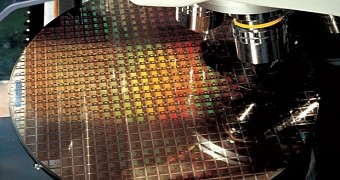The relationship between AMD and GlobalFoundries isn't as smooth as it used to be. Owned by the ATICI UAE oil company in the Emirates, GlobalFoundries is passing through some tough times financially and is currently being courted by some major Chinese hedge funds to become China's first wafer fab. AMD seems to have none of that and it may switch to TSMC instead.
It seems that when two companies go through bad financial periods and they usually rely on each other, some sort of rupture occurs. Once part of AMD, GlobalFoundries has been sold to Mubadala Company in Abu Dhabi, which is owned by the Emirates royal family. Although the purchase was meant to open jobs in the wafer industry inside the UAE capital, not much has been done in this regard so GlobalFoundries went on a steady downslope for some years.
These issues were noted by AMD, and since its current APUs aren't doing very well on the markets and the known heating problems persist, the company believes a move to TSMC is ultimately a better idea. In this regard Expreview believes the first chip to be manufactured at the fabs in Taiwan will be none other than the "Zen" core using the new, popular 16nm FinFET technology. And since 14nm process manufacturing has some trouble being developed at GlobalFoundries, the TSMC 16nm offer seems more attractive.
Money, experience and reliability make TSMC a much better fab
However, GlobalFoundries isn't a complete failure yet. They have recently bought a big chunk of IBM patents and its entire process manufacturing division, and together with the American giant, they developed the world's first 7nm wafer. However, the main reason for AMD’s main switch to TSMC is their reliable work in producing excellent quality chips for NVIDIA. Additionally, their experience in building these chips in 16nm FinFET Plus manufacturing process is something that AMD might want to enjoy.
These could easily be rumors since there aren't any official statements from either TSMC or AMD, but such a move would greatly delay the launch of the Zen architecture from the early 2016 roadmap to the end of next year. Also, the sort of manufacturing process AMD will choose for Zen is rather unknown, if it's either 14nm or 16nm, so much of the known stuff regarding the new processor’s production process is pretty much speculation.

 14 DAY TRIAL //
14 DAY TRIAL //